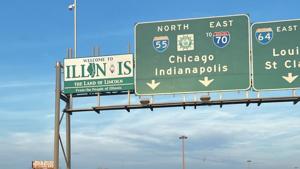
Manhattan Township Halts Electric Aggregation Program, Citing Poor Pricing
Residents in unincorporated Manhattan Township will no longer be enrolled in a group electricity purchasing plan after the Township Board voted unanimously not to renew its electric aggregation contract.
The decision was made during the board’s April 8 meeting after a review of new pricing proposals. According to Supervisor James ‘Jim’ Walsh, “This year’s proposed pricing does not seem as economical as it was in the last couple of years,” making the program less beneficial for residents.
Under the previous aggregation agreement, residents were automatically enrolled in the plan negotiated by the township unless they individually chose to opt out and select their own electricity supplier. By voting not to renew, the board has effectively ended the program for the time being. Residents will revert to the default ComEd supply rate or must independently choose an alternative retail electric supplier.
The motion to not renew the agreement was made by Trustee William ‘Bill’ McGrath and seconded by Trustee Mark Yunker. With the deadline to enter a new contract looming on April 15, the board’s vote provides a decisive end to the program.
Latest News Stories

Manhattan Man Arrested on Six Felony Counts of Child Pornography

Trump admin cracking down on cartel tunnels at southwest border

Illinois quick hits: DHS responds to migrant release order

As Trump considers rolling back some tariffs, trade groups want in

New Mexico attempts to counter Trump’s deportation agenda

WATCH: Newly released Epstein emails discussing Trump ‘prove nothing,’ says Leavitt

Small business leader warns swipe fees are squeezing local stores

Pritzker disagrees with Durbin on vote to end shutdown

Pritzker open to conversation with Trump on alderman’s immigration proposal

Expert: Illinois’ outdated tax law leaves homeowners, taxpayers on the hook

Illinois quick hits: Midway Blitz nabs nine drunk drivers; Madigan prosecutor to depart

Meeting Summary and Briefs: Manhattan-Elwood Public Library District Board for September 2025


